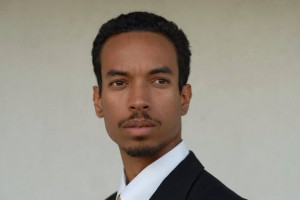 Businessman and Assemblyman elect David Hadley pulled off the upset of the election cycle in California politics, defeating Democratic Assemblyman Al Muratsuchi in the Democratic leaning 66th Assembly district, breaking the Democratic supermajority in the Assembly, and by the thinnest of margins. Some say this victory shows fiscal conservatism is still appealing in the Golden State. Hopefully that’s true. But more than anything it demonstrates fundamental elements of successful politicking that Republicans in California will have to re-master if they are to become competitive again statewide.
Businessman and Assemblyman elect David Hadley pulled off the upset of the election cycle in California politics, defeating Democratic Assemblyman Al Muratsuchi in the Democratic leaning 66th Assembly district, breaking the Democratic supermajority in the Assembly, and by the thinnest of margins. Some say this victory shows fiscal conservatism is still appealing in the Golden State. Hopefully that’s true. But more than anything it demonstrates fundamental elements of successful politicking that Republicans in California will have to re-master if they are to become competitive again statewide.
Mr. Hadley began campaigning for Assembly in the South Bay district less than a year and a half before his unexpected victory. But he began laying the ground work well before that. David Hadley initially became involved in politics by joining, and not long thereafter accepting the presidency of, the Beach Cities Republican club. There he began organizing; turning it from little more than a conversation group into an outfit with a formidable membership capable of registering voters.
Next Mr. Hadley was elected Chair of the 66th Republican Central Committee, and then proceeded to do something remarkable in the context of Republican central committees in California: he raised money. During the last election cycle, the 66th central committee raised more money than every other Republican central committee in the state of California combined.
In addition, Mr. Hadley began his own association known as the South Bay 100; with 100 Republicans donors from the South Bay committing $1000 dollars apiece to the enterprise, Mr. Hadley established an organization whose support stood to be critical for any Republican seeking office in the region. (Yet for all that, Mr. Hadley’s campaign would boast overwhelmingly more small and local donors than Mr. Muratsuchi’s.) This was important, because Republicans in the South Bay had suffered through divisive GOP primaries in the recent past, (particularly between businessman and eventual 2012 Assembly nominee Craig Huey, and Aerospace engineer Nathan Mintz) leaving the party weakened in the 2012 general election.
As it turned out, establishing this infrastructure and this network of gate keepers for Republican office seekers in the South Bay may very well have allowed the party to avoid precisely such division in the primary campaign of 2014. David Hadley was initially challenged by a very appealing candidate in Hollywood actor Ned Vaughn, who went as far as to resign his position as executive Vice-President of the Screen Actors Guild to run for the seat. But ultimately the critical networks of influence coalesced and established by David Hadley stood by Mr. Hadley, and Mr. Vaughn had no choice but to abandon the effort, eventually lending his support to the Hadley campaign as well.
Yet what is most remarkable is that, for all of his thorough ground laying, Mr. Hadley never intended to run for Assembly (or for any public office, so far as anyone can tell). Affable but not gregarious, articulate but not particularly charismatic, David Hadley is not a natural politician. Prior to Mr. Vaughn’s advent, a thorough search was made for suitable South Bay candidate. It was only when none was found that he made the decision to run.
David Hadley has shifted the balance of power in California politics…from something utterly lopsided to something just very lopsided in favor of the Democratic Party. This the arguably most organized Republican candidate in the state of California was just barely able to do. In this his victory actually demonstrates the weakness of the Republican Party more than its strength. He will be a huge target for a regrouped Democratic Party machine seeking to retake this seat with a predictable increase in Democratic turnout in 2016’s presidential election cycle. Mr. Muratsuchi has already vowed to return.
Yet Republicans can take heart in the fact that good organization really can win elections. Some things in politics can’t be controlled. But the things that can be, can make the difference.

